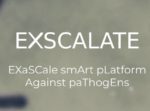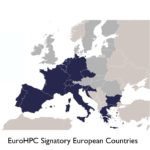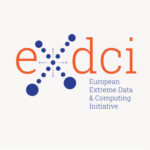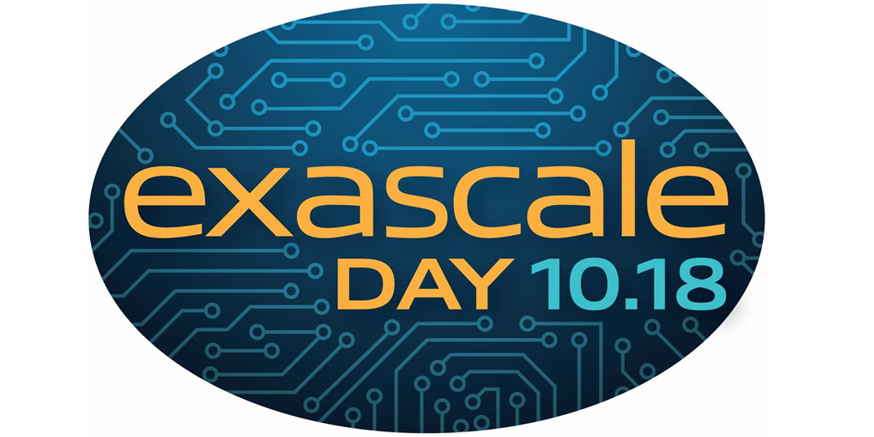This week the EU launched a new portal for PHIDIAS, a Horizon 2020 project for creating sustainable HPC data-powered services for the earth, atmospheric and marine data towards researchers, industry and public sectors. “The PHIDIAS site offers unique access point for any updates about the project, the future of HPC and any big data findings related to Earth Observation, Intelligent Screening of Satellite data and Ocean data management.”
EU Funds Exscalate supercomputing platform to fight coronavirus
Today the European Commission allocated new funding to the Exscalate (E4C) consortium for projects to counter the Coronavirus pandemic and improve the management and care of patients. As part of the effort, the E4C consortium is leveraging EU’s supercomputing resources coupling them with some of the continent’s best life-science research labs to counter international pandemics faster and more efficiently. “At the core of the project is Exscalate, the most powerful, cost-efficient, and intelligent supercomputing platform in the world, developed by Dompé. Exscalate leverages a “chemical library” of 500 billion molecules, thanks to a processing capacity of more than 3 million molecules per second.”
ExaNoDe Builds Groundbreaking 3D prototype of Compute Element for Exascale
Today the European ExaNoDe project announced it has built a groundbreaking compute node prototype paving the way to exascale. “In the ExaNoDe project, we have built a complete prototype that integrates multiple core technologies: a 3D active interposer with chiplets, Arm cores with FPGA acceleration, a global address space, high-performance and productive programming environment, which will enable European technology to satisfy the requirements of exascale HPC.”
European Commission to Boost Investments in Ai
Earlier this week, the European Commission outlined a three-pronged approach to increase public and private investment in AI, prepare for socio-economic changes, and ensure an appropriate ethical and legal framework. “Ai presents new challenges that Europe should meet together in order for AI to succeed and work for everyone. We need to invest at least €20 billion by the end of 2020. The Commission is playing its part: today, we are giving a boost to researchers so that they can develop the next generation of AI technologies and applications, and to companies, so that they can embrace and incorporate them.”
MERIL-2 Project Launches Tool for Mapping Research Infrastructure in Europe
Today the European Commission MERIL-2 project introduced a new Data Visualization tool that allows users to discover all of the European research infrastructures in the MERIL database interactively. With the new tool, users can quickly see and explore data on the European research landscape, such as RI size and location, user profiles, and research capabilities of over 1,000 research facilities across the continent.
Take the Exascale Resilience Survey from AllScale Europe
The European Horizon 2020 AllScale project has launched a survey on exascale resilience. “As we approach ExaScale, compute node failure will become commonplace. @AllScaleEurope wants to know how #HPC software developers view fault tolerance today, & how they plan to incorporate fault tolerance in their software in the ExaScale era.”
Czech Republic joins EuroHPC Initiative
Today the European Union announced that the Czech Republic is the 14th country to sign the European declaration on high-performance computing. The initiative aims at building European supercomputers that would rank among the world’s top three by 2022-2023. “We are prepared to provide the Czech national HPC capacities and capabilities for this joint mission and contribute to accomplish it successfully.”
European Commission to invest €30 billion in Research, Science, and Innovation
Today the European Commission plans to spend €30 billion of the EU research and innovation funding program Horizon 2020 during 2018-2020, including €2.7 billion to kick-start a European Innovation Council. “The program marks a step change in promoting Open Science by shifting from publishing research results in scientific publications towards sharing knowledge sooner in the research process.”
Introducing the European EXDCI initiative for HPC
“The European Extreme Data & Computing Initiative (EXDCI) objective is to support the development and implementation of a common strategy for the European HPC Ecosystem. One of the main goals of the meeting in Bologna was to set up a roadmap for future developments, and for other parties who would like to participate in HPC research.”
Video: Europe’s HPC Strategy
Leonardo Flores from the European Commission gave this talk at the HPC User Forum in Milwaukee. “High-Performance Computing is a strategic resource for Europe’s future as it allows researchers to study and understand complex phenomena while allowing policy makers to make better decisions and enabling industry to innovate in products and services. The European Commission funds projects to address these needs.”













